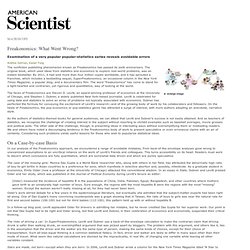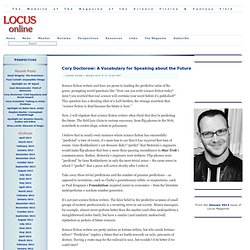

Jenny Diski reviews ‘Memory’ by Alison Winter · LRB 9 February 2012. The man who started the sexual revolution. Why women need fat. On any given day, more than half of women in the U.S. are on a diet.

In hopes of slimming their figures, millions take on Atkins, South Beach, Lean for Life or Hollywood 48. Some never eat after 5 p.m.; others only eat Subway sandwiches. While the diet industry has a less than noble reputation, it’s clear that American women, far more than men, remain obsessed with dieting. But what can evolutionary biology tell us about gender difference and eating habits? Calories and Corsets: why dieting never went out style. The trouble is, as Foxcroft notes, diets are generally a failure.

She quotes research from the American Psychological Association which found that two thirds of people were actually fatter two years after starting a diet than they were before they began. The authors concluded that diets ‘do not lead to sustained weight loss or health benefits for the majority of people’. article continues after advertisement. How to Dispel Your Illusions by Freeman Dyson. Thinking, Fast and Slow by Daniel Kahneman Farrar, Straus and Giroux, 499 pp., $30.00.

Deborah Blum. Tales of poppy-heads. Frances Wilson Thomas DormandyOPIUMReality’s dark dream366p.

Yale University Press. £25 (US $40).978 0 300 17532 5 Published: 23 May 2012 Photograph: The Bridgeman Art Library. A History Of Violence Edge Master Class 2011. Click on slides to enlarge The other method of measuring violence in pre-state societies is ethnographic vital statistics.

What is the rate of death by violence in people who have recently lived outside of state control, namely hunter-gatherers, hunter-horticulturalists, and other tribal groups? There are 27 samples that I know of, where ethnographic demographers that have done the calculation. I've plotted them as war deaths per 100,000 people per year. They go as high as 1500, but the average across these 27 non-state societies is a little bit more than 500. Steven Pinker: Why Violence Is Vanishing. There’s more to progress than biology. Certainly there is plenty of anecdotal evidence to support such a proposition.

As Patrick Hayes pointed out late last year , the reason so many people were recently up in arms about a drunk and possibly mentally ill woman’s racist diatribe on a tram is because racist diatribes are no longer commonplace. Going back somewhat further in time, whatever one makes of modern city life, few think it worse than the world presented in Hogarth’s ‘Gin Lane’. article continues after advertisement.
War No More. As Steven Pinker observes, we recall the twentieth century as an age of unparalleled violence, and we characterize our own epoch as one of terror.

But what if our historical moment is in fact defined not by mass killing but by the greatest levels of peace and safety ever attained by humankind? By way of this provocative hypothesis, the acclaimed psychologist and cognitive neuroscientist aims to liberate us from the overblown victimhood-by-contiguity of the present moment, maintaining quite credibly that we ought to be grateful for living when we do. In his vivid descriptions of the distant and recent past, Pinker draws from a wide range of fields beyond his own to chart the decline of violence, which he says "may be the most important thing that has ever happened in human history. " Profiles in Science - Steven Pinker - Human Nature’s Pathologist. Debunking Malthus. Freakonomics: What Went Wrong? Examination of a very popular popular-statistics series reveals avoidable errors Andrew Gelman, Kaiser Fung The nonfiction publishing phenomenon known as Freakonomics has passed its sixth anniversary.

The original book, which used ideas from statistics and economics to explore real-world problems, was an instant bestseller. A Vocabulary for Speaking about the Future. Science fiction writers and fans are prone to lauding the predictive value of the genre, prompting weird questions like ‘‘How can you write science fiction today?

Aren’t you worried that real science will overtake your novel before it’s published?’’ This question has a drooling idiot of a half-brother, the strange assertion that ‘‘science fiction is dead because the future is here.’’ How the Hippies Saved Physics: Science, Counterculture, and the Quantum Revival [Excerpt] Editor's Note: Reprinted from How the Hippies Saved Physics: Science, Counterculture, and the Quantum Revival by David Kaiser.
![How the Hippies Saved Physics: Science, Counterculture, and the Quantum Revival [Excerpt]](http://cdn.pearltrees.com/s/pic/th/counterculture-scientific-82167297)
Copyright (c) 2011 by David Kaiser. Used with permission of the publisher, W.W. Science on the Rampage by Freeman Dyson. Physics on the Fringe: Smoke Rings, Circlons, and Alternative Theories of Everything by Margaret Wertheim Walker, 323 pp., $27.00. What Babies Know and We Don’t by Michael Greenberg. The Philosophical Baby: What Children’s Minds Tell Us About Truth, Love, and the Meaning of Life by Alison Gopnik Farrar, Straus and Giroux, 288 pp., $25.00 The most elusive period of our lives occurs from birth to about the age of five. Darwin’s ‘clumsy’ prose. Angelique Richardson George LevineDARWIN THE WRITER244pp. Oxford University Press. £19.99 (US $35).978 0 19 960843 0 Published: 6 June 2012. Nature, nurture and liberal values. The descent of Edward Wilson. Richard Dawkins in furious row with EO Wilson over theory of evolution. Professor Richard Dawkins, author of many bestsellers including The Selfish Gene and The God Delusion. Evolution and Our Inner Conflict.
Laboratory confidential. How the Power of Positive Thinking Won Scientific Credibility - Hans Villarica - Health. Psychologist Michael F. We are not all mentally ill now. Book Review: Psychology's Ghosts. ‘A Universe From Nothing,’ by Lawrence M. Krauss. Pondering a universe without purpose. The Population Control Holocaust. Shift Happens - The Chronicle Review. The Irrationality of Irrationality: The Paradox of Popular Psychology. In 1996, Lyle Brenner, Derek Koehler and Amos Tversky conducted a study involving students from San Jose State University and Stanford University. The researchers were interested in how people jump to conclusions based on limited information. Race Finished. Does beer make you blush? or, why “race” is a myth.